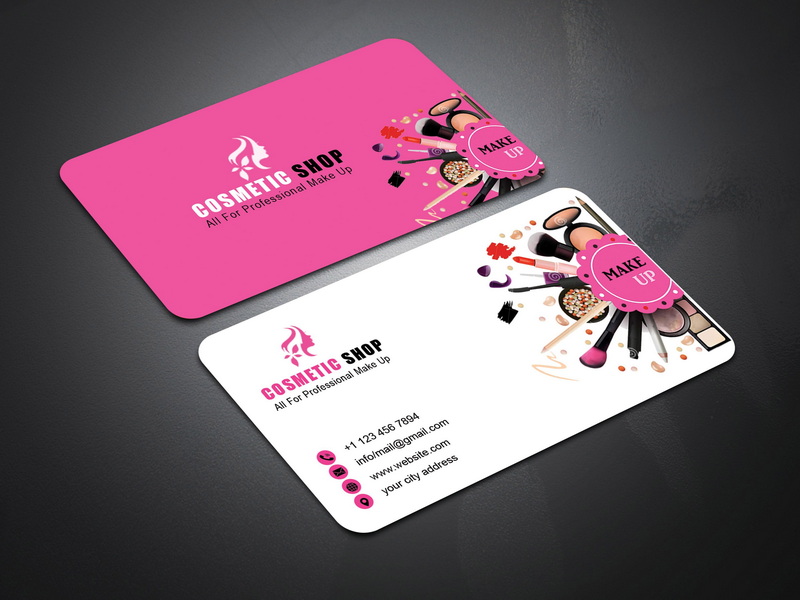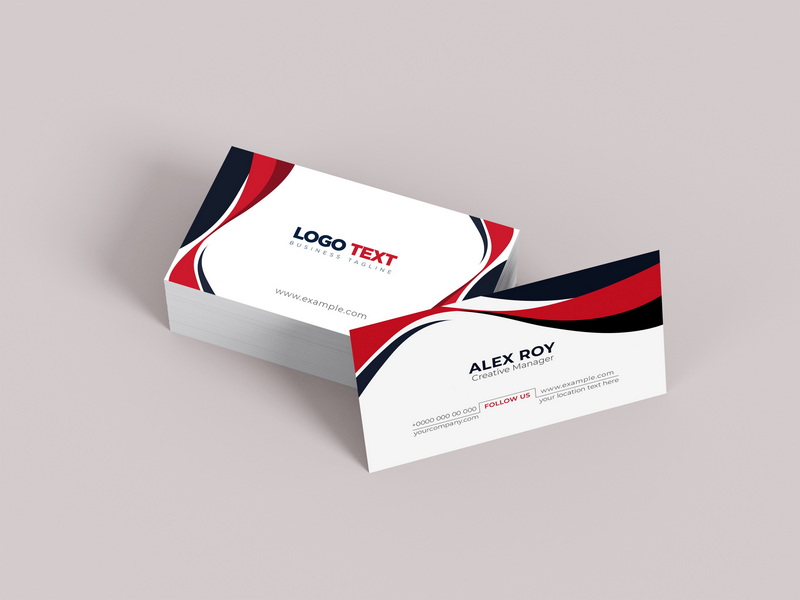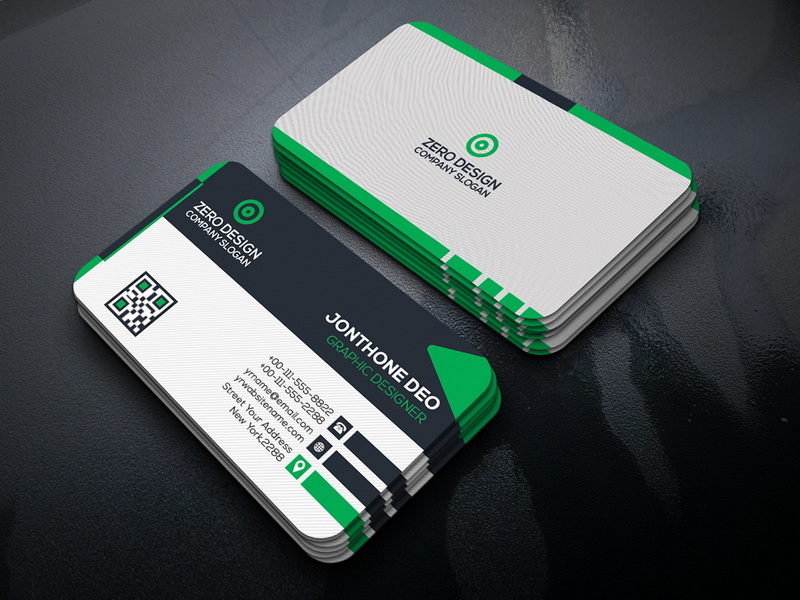Content Menu
● Understand the Purpose of Your Business Card
● Organize Your Information
● Choose Your Size and Shape
● Decide on a Typeface
● Follow Basic Design Principles
● Include a Call to Action (CTA)
● Finalize Your Design
● Choose Quality Printing Options
● Consider Color Psychology
● Think About Unique Features
● Conclusion
● Frequently Asked Questions (FAQs)
>> 1. What should I include on my business card?
>> 2. What size should my business card be?
>> 3. How do I choose the right font for my business card?
>> 4. Why is white space important in business card design?
>> 5. How can I make my business card stand out?
● Citations:
A business card is more than just a piece of paper with your contact information; it's a visual representation of you and your company. Effective business cards fulfill several marketing needs, including brand recognition, advertisement, call to action, and important contact information. This guide will walk you through the steps to design a business card that leaves a lasting impression.

Understand the Purpose of Your Business Card
Before diving into the design process, it's essential to understand what you want your business card to achieve. Consider the following:
- Brand Identity: Your card should reflect your brand's personality and values. It's often the first impression potential clients or partners will have of your business.
- Networking Tool: It serves as a tangible reminder of your interaction with potential clients or partners. A well-designed card can facilitate connections and encourage follow-ups.
- Information Sharing: It should effectively communicate key details about you and your business, making it easy for recipients to remember you.
Organize Your Information
The first step in creating a business card is determining what information to include. Here are the essential elements:
- Name: Your full name should be prominent.
- Job Title: Clearly state your position or role within the company.
- Company Name: Include your business name, ideally accompanied by a logo that enhances brand recognition.
- Contact Information: Provide at least one method for potential clients to reach you (phone number or email). This is crucial for follow-up communications.
- Website URL: A link to your website can direct clients for more information about your services or products.
- Social Media Handles: If relevant, include professional social media accounts, especially those that showcase your work or connect with clients (like LinkedIn).
Establishing a hierarchy for this information is crucial; the most important details should be the most prominent.
Choose Your Size and Shape
Business cards come in various sizes and shapes. The standard size in North America is 3.5 inches by 2 inches. However, you might consider:
- Square Cards: These modern cards measure 2.5 inches by 2.5 inches and can stand out in a stack of traditional cards.
- Rounded Corners: Adding rounded corners can give a softer look while maintaining the standard size, making it feel more approachable.
- Custom Shapes: Unique shapes can make your card stand out but may not fit standard wallets. Consider how the shape aligns with your brand image.
When selecting dimensions, consider your target audience and how you want to be perceived. A creative shape can convey innovation, while a traditional shape may suggest reliability.
Decide on a Typeface
The font you choose plays a significant role in conveying your brand's personality. Here are some tips:
- Readability is Key: Use fonts that are easy to read at small sizes; avoid overly decorative fonts that may confuse readers.
- Consistency with Branding: If you have specific fonts used in your branding materials (like your website or brochures), incorporate them into your card design for consistency.
- Size Matters: Ensure that your name and title are larger than other text elements (at least 12pt for names) so they catch the eye immediately.
Follow Basic Design Principles
Effective design principles can enhance the overall impact of your business card:
- Simplicity: Avoid clutter; less is often more when it comes to design. Focus on essential information that supports your brand message.
- White Space: Utilize negative space effectively to allow important information to stand out. White space can help guide the reader's eye through the card without overwhelming them with content.
- Visual Hierarchy: Organize elements so that the eye naturally flows from one piece of information to another. Use size, color, and placement strategically to create emphasis on key details.

Include a Call to Action (CTA)
While not mandatory, including a CTA can encourage recipients to take the next step:
- Examples include phrases like “Call us today” or “Visit our website for more details.”
This can also be done creatively by incorporating QR codes that lead to your website or portfolio, allowing tech-savvy users quick access to more information about you or your services.
Finalize Your Design
Once you've designed your card, it's crucial to proofread and ensure everything is accurate:
- Check for typos or errors in contact information; even small mistakes can undermine professionalism.
- Ask someone else to review it for clarity and professionalism; fresh eyes can catch errors you might overlook.
Choose Quality Printing Options
The quality of printing can significantly affect how your card is perceived:
- Material Selection: Thicker cardstock often conveys professionalism; consider finishes like matte or glossy based on your brand image. A matte finish can give an elegant look while glossy finishes might make colors pop more vibrantly.
- Professional Printing Services: Opt for reputable printing services that offer high-quality prints and materials. Research local print shops or online services known for their quality work.
Consider Color Psychology
The colors you choose for your business card play an important role in how it's perceived:
- Different colors evoke different emotions; for example:
- Blue: Trustworthiness and dependability.
- Red: Energy and passion.
- Green: Growth and health.
- Black: Sophistication and elegance.
Choose colors that align with both your brand identity and the emotions you wish to evoke in potential clients.
Think About Unique Features
To further differentiate yourself from competitors, consider adding unique features:
- Embossing/Debossing: Raised or recessed designs add texture and interest.
- Foil Stamping: Metallic foil accents can create an eye-catching effect.
- Textured Paper: Using textured cardstock can provide a tactile experience that makes an impression during networking events.
These features may involve additional costs but could significantly enhance the perceived value of your card.
Conclusion
Creating an effective business card involves careful planning and design considerations that reflect your brand identity while providing essential contact information. By following these steps, you can ensure that your business card stands out and leaves a positive impression on potential clients or partners. Remember, every detail counts—from the information included to the quality of materials used—so invest time in crafting something truly representative of who you are as a professional.

Frequently Asked Questions (FAQs)
1. What should I include on my business card?
It's essential to include your name, job title, company name, contact information (phone number and email), and optionally, a website URL or social media handles.
2. What size should my business card be?
The standard size for business cards in North America is 3.5 inches by 2 inches. However, you can also opt for square cards or custom shapes depending on your branding strategy.
3. How do I choose the right font for my business card?
Select fonts that are easy to read at small sizes and align with your brand identity. Avoid overly decorative fonts that may hinder readability.
4. Why is white space important in business card design?
White space helps prevent clutter, allowing key information to stand out more effectively. It also provides room for notes when recipients want to jot down additional details during networking interactions.
5. How can I make my business card stand out?
Consider using unique shapes, high-quality materials, creative designs, or adding QR codes that link directly to your online portfolio or website.
Citations:
[1] https://www.gelato.com/blog/how-to-design-a-business-card-2024-guide
[2] https://www.marion.com/6-steps-to-designing-the-perfect-business-card/
[3] https://www.youtube.com/watch?v=JiBCYPAKydQ
[4] https://www.moo.com/us/business-cards/design-guidelines
[5] https://www.indeed.com/career-advice/career-development/business-card-tips
[6] https://www.printivity.com/insights/2021/12/27/design-effective-business-cards/
[7] https://blog.hubspot.com/sales/how-to-design-business-card
[8] https://www.rightbydelzer.com/how-to-design-a-business-card-in-5-steps/
[9] https://www.fedex.com/en-us/small-business/articles-insights/how-to-design-a-business-card.html
[10] https://www.brandly.com/blog/10-must-do-rules-for-designing-your-business-card/
[11] https://www.displays2go.com/Guide/How-To-Design-Most-Professional-Business-Cards-5
[12] https://images.ctfassets.net/pdf29us7flmy/FFl1per2OWdwrnTwYnZhh/35f2ca8ad990b3d46a876c39aaefe98a/-IND-001-020-_6_Things_to_Put_on_a_Business_Card.png?sa=X&ved=2ahUKEwi5-baf5PeKAxWJEUQIHTzjCKEQ_B16BAgEEAI
[13] https://en.99designs.de/designer-resource-center/designing-business-cards
[14] https://res.cloudinary.com/vistaprint/images/w_2560,h_1196,c_scale/f_auto,q_auto/v1675872157/ideas-and-advice-prod/en-us/CMT520-BusinessCard-Golden-Rules-Refresh-marquee-2x/CMT520-BusinessCard-Golden-Rules-Refresh-marquee-2x.jpg?_i=AA&sa=X&ved=2ahUKEwjRlsCf5PeKAxUGVTABHSVZAj8Q_B16BAgGEAI
[15] https://images.ctfassets.net/pdf29us7flmy/FFl1per2OWdwrnTwYnZhh/35f2ca8ad990b3d46a876c39aaefe98a/-IND-001-020-_6_Things_to_Put_on_a_Business_Card.png?sa=X&ved=2ahUKEwiQ3rCf5PeKAxVBhIkEHSa5A3MQ_B16BAgDEAI
[16] https://www.gelato.com/blog/how-to-design-a-business-card-2024-guide
[17] https://www.marion.com/6-steps-to-designing-the-perfect-business-card/
































